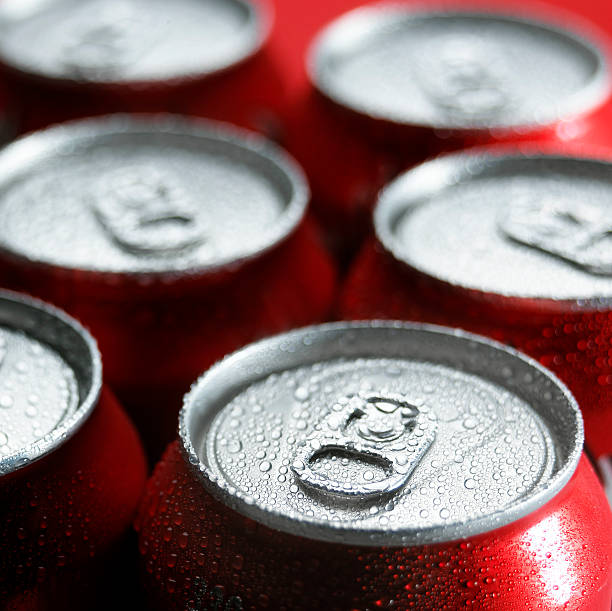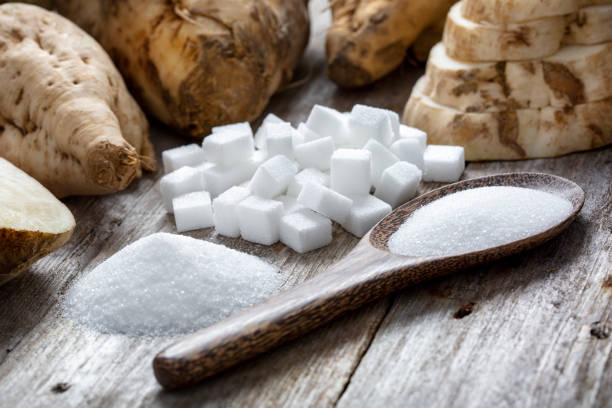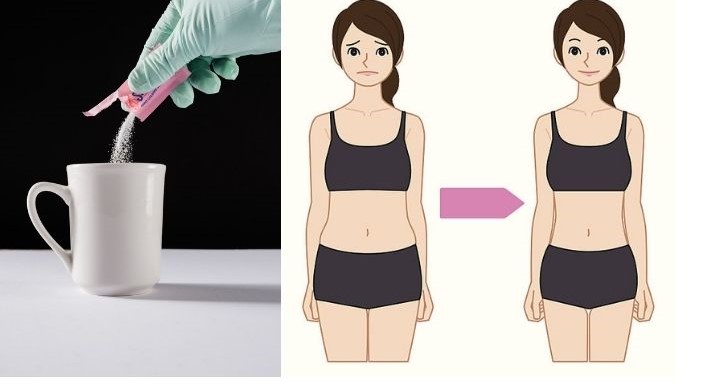Artificial sweeteners are used as sugar substitutes in place of table sugar. Artificial sweetner and weight loss, they are frequently found in many food and beverage products and are either calorie-free or low in calories. Many people use artificial sweeteners to cut back on calories and perhaps promote weight loss. However, there is conflicting information about the connection between artificial sweeteners and weight loss.

Here are some important things to think about:
Fewer calories consumed: Artificial sweeteners can be used in smaller amounts to obtain the desired degree of sweetness because they are considerably sweeter than ordinary sugar. This may aid in lowering calorie consumption overall, which could aid in weight loss or weight management.
Lack of calories: Since artificial sweeteners are not metabolised in the same way as sugar, they do not itself contain calories. As a result, they don’t add to the calorie count of the foods and drinks that include them.

Impact on hunger and cravings: According to some research, eating artificial sweeteners may interfere with the body’s satiety and hunger signals, which could result in increased appetite and desires for sweet foods. If this results in overeating or consuming more calorie-dense foods, it might potentially impede weight loss efforts.
Individual differences: Everyone reacts to artificial sweeteners differently. Artificial sweeteners may help some people lower their overall calorie consumption and effectively manage their weight, while others may have increased cravings or adverse physiological reactions.
Total dietary pattern: When assessing the effect of artificial sweeteners on weight reduction, it’s critical to take the total eating pattern into account. It is unlikely that switching from sugar to artificial sweeteners in an otherwise unhealthy diet will result in noticeable weight loss. A balanced diet, moderate exercise, and, if necessary, a calorie deficit are essential for effective weight management.
Are artificial sweeteners bad for weight loss?
Artificial sweeteners are typically regarded as harmless and can be incorporated into a weight loss strategy. These sweeteners offer a calorie-free or low-calorie substitute for sugar, which can aid in lowering calorie intake overall. It’s crucial to remember that artificial sweeteners do not in and of themselves directly result in weight loss.
By lowering the intake of high-calorie, sugary meals and beverages, using artificial sweeteners may aid in weight loss. You may save calories without sacrificing sweetness by substituting artificial sweeteners for sugar. Those who are attempting to regulate their weight or blood sugar levels may find this to be especially helpful.

But it’s also important to note that some research points to a potential connection between artificial sweeteners and weight gain. According to these studies, artificial sweeteners may boost the desire for sweet foods and cause overeating. To get to certain findings, additional research is necessary because there is conflicting evidence in this field.
It’s important to keep in mind that losing weight is a complicated process affected by a variety of elements, such as total calorie intake, food composition, physical activity, and individual metabolism. Artificial sweeteners can be included in a balanced weight reduction programme, but in order to lose weight that will last, it’s important to concentrate on general eating habits, portion management, and a healthy lifestyle. A certified dietician or healthcare provider can offer you individualised advice based on your unique requirements.
Why do artificial sweeteners cause weight gain?
The usage of artificial sweeteners does not immediately lead to weight gain. In fact, they are frequently used in place of sugar in a variety of foods and drinks to lower calorie intake and support weight management. Though the evidence is inconclusive, certain research and observations have suggested a possible connection between artificial sweeteners and weight gain.
Consuming artificial sweeteners may, according to one theory, have an impact on how our bodies regulate our metabolism and hunger. According to some research, the body’s natural reaction to sweet meals may be confused by the excessive sweetness of artificial sweeteners, increasing appetites for high-calorie, sweet foods. This effect is referred to as “sweetness adaptation” or “sweetness displacement.” In essence, when the body tastes something sweet but does not get the anticipated number of calories from it, it could look for other sources of calories to make up for it.

Artificial sweeteners may also change the composition of gut bacteria, which may have an impact on metabolism and weight regulation, according to some research. While the precise processes are still unclear, changes in gut microbiota have been linked in some studies to metabolic problems and weight gain.
It is significant to emphasise that additional research is required to fully comprehend the intricate relationships between artificial sweeteners, metabolism, and weight management as the data tying them to weight gain is not yet conclusive. Individual reactions to artificial sweeteners can also differ, and some people may lose weight while others may not have any noticeable effects at all.
What are the pros and cons of artificial sweeteners?
Aspartame, sucralose, and saccharin are a few examples of artificial sweeteners that are frequently used as sugar substitutes in a variety of foods and beverages. They have possible downsides in addition to benefits like decreased calorie consumption and blood sugar regulation. The following are some benefits and drawbacks of artificial sweeteners:
Pros:
Calorie reduction: Since artificial sweeteners have virtually no calories or very few calories, they are a popular choice for those trying to cut calories or control their weight.
Artificial sweeteners do not cause a rise in blood sugar because they are not carbs. People with diabetes or those trying to control their blood sugar levels may find this helpful.
Dental health: Artificial sweeteners are less likely to cause tooth decay and cavities than sugar since they are not fermented by mouth bacteria.

Versatility: Artificial sweeteners can be used as tabletop sweeteners, in a variety of foods and drinks, including baked products and beverages.
Cons:
Taste and texture: Compared to natural sugar, some people perceive artificial sweeteners to have a different flavour and possibly a somewhat bitter aftertaste. In some meals, these sweeteners might not have the same texture and mouthfeel as sugar.
Potential for overconsumption: Due to the low calorie content of artificial sweeteners, people might be enticed to consume more of the foods or beverages that contain them. Overeating may result from this, which would undermine weight loss efforts.
Digestive issues: Consuming artificial sweeteners, especially in high doses, may cause some people to develop digestive problems like gas, bloating, or diarrhoea.

Impact on gut health: According to recent research, artificial sweeteners may unbalance the flora in the gut, which may have effects on metabolism and general gut health. To come to firm conclusions, more study in this area is necessary, though.
Health impacts that have generated controversy: Although regulatory agencies like the U.S. Food and Drug Administration (FDA) have determined that artificial sweeteners are safe to consume, there have been questions and disagreements over their possible long-term health effects. Regardig Artificial sweetner and weight loss there are various research that have suggested a connection between some artificial sweeteners and unfavourable health effects, however the proof is inconclusive.
Some common Artificial sweetners
Aspartame is a low-calorie sweetener that is frequently used in diet sodas, sugar-free gum, and a variety of other foods. It is marketed under the trade names NutraSweet and Equal.
Sucralose is a calorie-free artificial sweetener sold under the brand name Splenda that is used in a variety of foods and beverages. Additionally, it is heat stable and suitable for baking.
Saccharin is a calorie-free sweetener that is marketed under the names Sweet’N Low and Saccharin. It has been around for a while and is frequently found in processed foods, diet sodas, and tabletop sweeteners.

Acesulfame potassium (Ace-K) is a calorie-free sweetener that is frequently combined with other artificial sweeteners. Ace-K is also referred to as Acesulfame K. It can be found in desserts, soft drinks, and sugar-free goods.
Neotame: This powerful artificial sweetener, which is around 8,000 times sweeter than sugar, is called neotame. It is safe to eat and drink and is used in many food and beverage items.
The sweetener stevia is obtained from a natural source, in contrast to the other sweeteners on this list. It is a zero-calorie sweetener that is made from the stevia plant’s leaves. Stevia, which comes in liquid and powdered forms, is a common ingredient in goods labelled as “natural” or “zero-calorie.”
Conclusion : Artificial sweetner and weight loss
It’s important to note that research on the long-term impact of artificial sweeteners on weight loss and general health is still ongoing. While some research point to a possible connection between artificial sweeteners and weight gain, others show no appreciable impact. To completely understand how artificial sweeteners affect controlling weight and general health, more research is required.
Always seek out individualised advice and counselling regarding weight loss and dietary decisions from a medical expert or certified dietitian.
